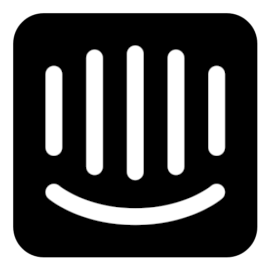Dhivya Sriram - Senior Product Manager @Observe.AI, ex- @Freshworks
I’ve been building products in the B2B SaaS space for 4.5 years now but I’m a B2C product person at heart!I have conceptualized, built and launched a collaboration product from scratch (why should Slack have all the fun?) and have also developed products for ITSM. I’m currently a Senior Product Manager at Observe.AI, where we build products that leverage AI to improve the productivity and performance of call center agents. I am extremely passionate about UX and product copy! I also co-create a comic series on product management called Shipping Tomorrow. When I’m not working, I’m either playing Ultimate Frisbee, admiring the sky or reading.
What does your typical day look like?
Well, I wake up, sleepwalk to my laptop and boom get right to work!
Just kidding 😝.
I like to start my day by creating some headspace.
It helps me lay aside any mental exhaustion/ frustrations from the previous day; start afresh and channel some creativity and empathy towards any problem that comes my way. A typical day for me is spent looking at customer feedback.
Following that, it depends on where we are in the product cycle - If I’m working on a new problem - I spend time trying to understand the problem area, figuring out the right problem to solve, and framing that problem in a way that everyone can understand it. This involves a lot of thinking, questioning my existence(and a lot of banging my head against the table), and having a lot of customer conversations to develop empathy and understanding.
- If I’m building a feature I spend my time brainstorming with my team and coming up with solutions and tests to understand if these solutions are actually working.
- I also spend a lot of time collaborating with engineering to understand the effort, timelines, and any blockers that may be delaying the release of this feature.
- If we’ve just shipped a feature I spend my time getting feedback, looking at usage, seeing if the tests have been validated and if the solution is actually working.
- Apart from all this, I try to spend a day every week looking at the big picture of the products I’m working on.
Why did you choose to become a product manager? How do you see things differently than the rest?
I started off as a developer at Tally solutions. One of the first projects I worked on was with the Government of India. They were running an initiative called the National Rural Livelihood Mission (NRLM) with the objective to uplift people in rural areas from economically weak(er) backgrounds by providing financial aid and helping them manage their finances better. My team and I had to build a tablet application that would be handed to these villagers who were not literate and had no internet connectivity but had to use this application to keep track of their expenses and fund receipts.
I had the chance to also work on the UX for this application which required a deep understanding of the persona of these last-mile villagers. I think this is where I was bitten by the product bug - I absolutely enjoyed solving these problems and realized the importance of simple and intuitive UX. I continued on as a developer for a couple of more years after that and I realized I was more interested in the “Why” rather than the “how”. I was advised by my peers and managers that doing an MBA will help me transition to the “Why” of doing things. After talking to a few people and reading up online, I discovered the role of a Product Manager and I knew then, this is what I wanted to try out next. What an amazing journey it has been!
What's the one thing that you absolutely love about your job?
I love going the extra mile to be able to create customer delight (and listening to this on a customer call is the icing on the cake :)!). From what I’ve experienced, the easiest way to do this is through simple and intuitive UX and fun, relatable product copy. Basically, treat users like they are humans.
What are some of the emerging trends in your industry that excite you? And why?
I’m working on expanding my product to a new persona and this has been very interesting and challenging. Another cool thing I’m working on is different ways of measuring learning. When someone is coached on a particular aspect of their day-to-day, I’m trying to understand how to measure if this person has learned from the coaching and is ready to apply their learning - resulting in a change in their behavior.
Do you follow any product/prioritization frameworks when making decisions? If yes, what are some of the top frameworks that you recommend, and why?
Well, I try to. When I’m deciding between items to work on, I try to use a framework. There are several but my favorite one is RICE.
I like RICE because it takes into account all of the factors involved in building and shipping a feature. How many people will use this feature? What’s the impact created? With what confidence can we say this and what’s the effort involved?
There are others such as MoSCow which is easier to use and adds structure to the decision-making process.
Intercom has a really nice article on how to use RICE to make decisions here

That being said, I’d like to add that while we all want to use data to make decisions, most often it’s instinct-based. Your gut tells you what to do and that’s a pretty good start to decision making. We also made a comic about this here
What’s the one tool you couldn’t do your job without, and which very few people know about?

Dropbox Paper!!! :) Anyone I've ever worked with knows this and inevitably have to sign up for dropbox paper to read my product specs :D
What's something that you learned/realized recently in your work journey that you wish you knew earlier?
Being candid with anyone you’re working with makes everything so much easier. I really wish I’d known this earlier. Instead of accumulating all the frustration and spewing hate internally about a co-worker, it is so much easier and liberating to just sit down with that co-worker and give them honest feedback about the things that aren’t working for you. In most cases, this is happening because the co-worker doesn’t even realize they’re doing something wrong. Sometimes, this conversation may not go the way you expect it, but hey at least we tried.
The outcome of this heavily depends on how we communicate and I want to give a shout-out to the book “Crucial Conversations” which has given me the courage to have tough conversations with decently productive outcomes.
What's the one mistake you've done and will advise others not to repeat?
I think making mistakes is the best way to learn. However, one thing I really tend to watch out for (after making this mistake many times) is to not make any decisions on a day when I’m mentally fatigued.
Generally, we get rushed into decisions because of a deadline or we tend to be really hard on ourselves on a not-so-productive day and force ourselves to get some work done. I’d say that the best thing you can do for yourself on a not-so-productive day is to take the day off and come back recharged and smarter.
What are some of your biggest inspirations that help you get up and do your best work?
Hearing from customers is the biggest motivator there is, to get up and get going.
What would you recommend to people who want to start their careers in your space?
Ah, tough one. I’d say the most important thing is to observe and learn. When it comes to product management, especially in recent years, there’s so much material out there on how to become a PM, how to develop a product mindset - it can be pretty overwhelming. The starting point is to understand do you really want to become a Product Manager? and you can do that by seeing what a PM does, maybe shadowing a PM around. I’d also recommend looking at how the role changes when a PM goes up the ladder - what does a senior PM do vs principal PM vs director, etc., and see if that truly interests you. It’s also really valuable to observe products around us that people use for their day-to-day and try to understand why the product has been built that way, what’s the strategy, what’s working/what’s not, etc.
Also, if you’re just out of college - I’d say start by doing something else that helps you gain some perspective. It might help to start by working in a role that allows the development of basic skills a PM needs such as marketing, designing, customer support, engineering, etc. This will give you a leg up when you subsequently choose to move to a PM role.
Anything you want to promote or plug?
I co-create a comic series on product management called Shipping Tomorrow and you can check this out on

Are you open to people new to the industry reaching out to you for help?
Please reach out to me on Twitter DM with a clear request and I'd be happy to chat!


